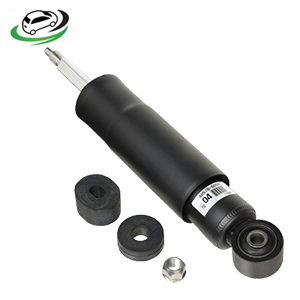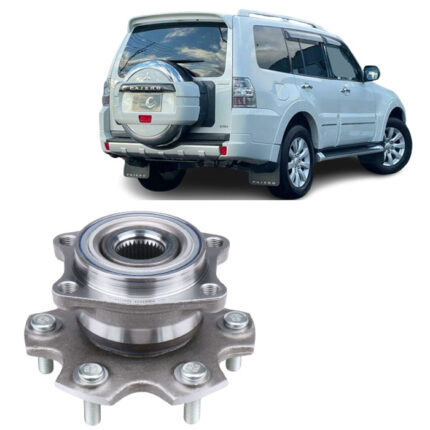-7%
Get Toyota Landcruiser Genuine Fuel Filter 23303-64010 in Kenya
A fuel filter is an essential component in an internal combustion engine that ensures only clean fuel reaches the engine. It removes contaminants such as dirt, rust, debris, and water that can damage fuel injectors, clog fuel lines, and reduce engine performance. Using a genuine fuel filter is crucial to maintaining engine efficiency, prolonging component life, and preventing costly repairs.
In this article, we will explore everything about genuine fuel filters, including their function, types, benefits, symptoms of failure, maintenance, and replacement tips.
What is a Fuel Filter?
A fuel filter is a filtration device placed in the fuel delivery system of a vehicle to remove impurities from gasoline or diesel before it reaches the engine. The presence of contaminants in fuel can lead to engine inefficiency, misfires, or even complete failure.
A genuine fuel filter is an original manufacturer-approved component designed to meet the engine’s fuel filtration requirements precisely. Unlike counterfeit or low-quality filters, genuine filters provide superior filtration, durability, and compatibility with the vehicle’s fuel system.
How a Fuel Filter Works
The fuel filter works as a barrier that traps unwanted particles from entering the fuel injectors and combustion chamber. The process works as follows:
-
Fuel Intake
- Fuel is drawn from the fuel tank through the fuel pump.
-
Filtration Process
- The fuel filter removes solid contaminants (dust, rust, and dirt) and separates water particles from the fuel.
-
Clean Fuel Delivery
- Only clean and purified fuel reaches the fuel injectors, ensuring optimal combustion and engine performance.
-
Continuous Operation
- Over time, contaminants accumulate in the fuel filter, requiring periodic replacement to maintain efficient fuel flow.
Types of Fuel Filters
Fuel filters come in different designs based on vehicle type, fuel system, and engine requirements.
1. Inline Fuel Filter
- Location: Positioned along the fuel line between the fuel tank and engine.
- Common Use: Found in modern gasoline and diesel vehicles.
- Advantage: Easy to replace when clogged.
2. Cartridge Fuel Filter
- Location: Housed inside a metal or plastic canister and replaced separately from the housing.
- Common Use: Found in diesel engines and high-performance vehicles.
- Advantage: More environmentally friendly, as only the filter element is changed.
3. Spin-On Fuel Filter
- Location: A screw-on design similar to an oil filter.
- Common Use: Mostly in older vehicles and heavy-duty trucks.
- Advantage: Quick and simple replacement process.
4. Water Separator Fuel Filter (For Diesel Engines)
- Function: Removes water from diesel fuel to prevent injector damage.
- Common Use: Found in diesel-powered trucks, SUVs, and boats.
- Advantage: Improves fuel quality and prevents engine knocking.
Benefits of Using a Genuine Fuel Filter
1. Superior Filtration Efficiency
- A genuine fuel filter removes 99% of contaminants, ensuring only clean fuel reaches the engine.
- Prevents clogging of fuel injectors and fuel lines, reducing maintenance costs.
2. Protects Engine Components
- Prevents fuel injector failure, which can lead to poor fuel atomization and misfires.
- Extends the life of components like high-pressure fuel pumps and combustion chambers.
3. Improves Fuel Economy
- Clean fuel ensures efficient combustion, leading to better mileage and lower fuel consumption.
- Reduces strain on the fuel delivery system, optimizing engine performance.
4. Prevents Water Contamination (Diesel Engines)
- A genuine diesel fuel filter with a water separator ensures water does not mix with fuel, preventing rust and injector damage.
5. Reduces Emissions
- Ensures complete combustion of fuel, reducing harmful exhaust emissions.
- Helps vehicles comply with emission regulations.
6. Ensures Compatibility with the Fuel System
- Genuine fuel filters are engineered for specific vehicles, ensuring precise fit and performance.
- Counterfeit filters may have poor seals, leading to fuel leaks and reduced filtration efficiency.
Symptoms of a Clogged or Failing Fuel Filter
1. Difficulty Starting the Engine
- A clogged fuel filter restricts fuel flow, making it harder to start the engine.
- In extreme cases, the engine may not start at all.
2. Poor Engine Performance
- Sluggish acceleration and loss of power, especially when climbing hills or towing.
- Engine hesitation or sputtering due to inconsistent fuel delivery.
3. Engine Misfires
- Insufficient fuel supply causes misfires and rough idling.
- Can lead to increased fuel consumption and damage to spark plugs.
4. Check Engine Light (CEL) Activation
- The vehicle’s ECU detects fuel pressure irregularities and triggers the check engine light.
5. Fuel Odor
- A damaged or improperly fitted fuel filter may cause fuel leaks, leading to a strong fuel smell.
6. Black Smoke from Exhaust
- Incomplete combustion due to fuel restriction can lead to black smoke emission.
7. Stalling Engine
- A severely clogged filter can completely block fuel flow, causing the engine to stall while driving.
How Often Should a Fuel Filter Be Replaced?
The replacement interval for a fuel filter depends on:
- Vehicle manufacturer’s recommendation (usually every 20,000 – 40,000 miles or every 2 years).
- Type of fuel used (diesel engines require more frequent replacement).
- Driving conditions (vehicles driven in dusty or dirty environments need more frequent replacements).
It’s always best to follow the owner’s manual for accurate service intervals.
How to Replace a Fuel Filter
Tools Required:
- New genuine fuel filter
- Fuel line disconnect tool
- Screwdriver or wrench
- Safety gloves and eye protection
Step-by-Step Process:
-
Relieve Fuel System Pressure
- Disconnect the fuel pump fuse and start the engine to depressurize the system.
-
Locate the Fuel Filter
- Check the owner’s manual to find the exact location of the filter.
-
Remove the Old Fuel Filter
- Use a wrench or fuel line tool to disconnect the inlet and outlet fuel lines.
-
Install the New Fuel Filter
- Ensure the correct orientation (fuel flow direction is marked).
- Secure the connections tightly.
-
Reconnect the Fuel Pump and Test
- Reconnect the fuel pump fuse and start the engine to check for leaks.
-
Inspect for Fuel Leaks
- Run the engine and check around the filter for any fuel leaks.
Conclusion
A genuine fuel filter plays a vital role in maintaining engine performance, fuel efficiency, and longevity. It protects the fuel system from contaminants, prevents injector damage, and ensures smooth engine operation.
To keep your vehicle running at its best, always:
✔ Use a genuine fuel filter instead of counterfeit or low-quality alternatives.
✔ Follow the recommended replacement intervals.
✔ Regularly inspect for fuel system issues.
A well-maintained fuel filter ensures reliable performance, improved fuel economy, and extended engine life. 🚗🔧
Follow us on Facebook for more parts.



